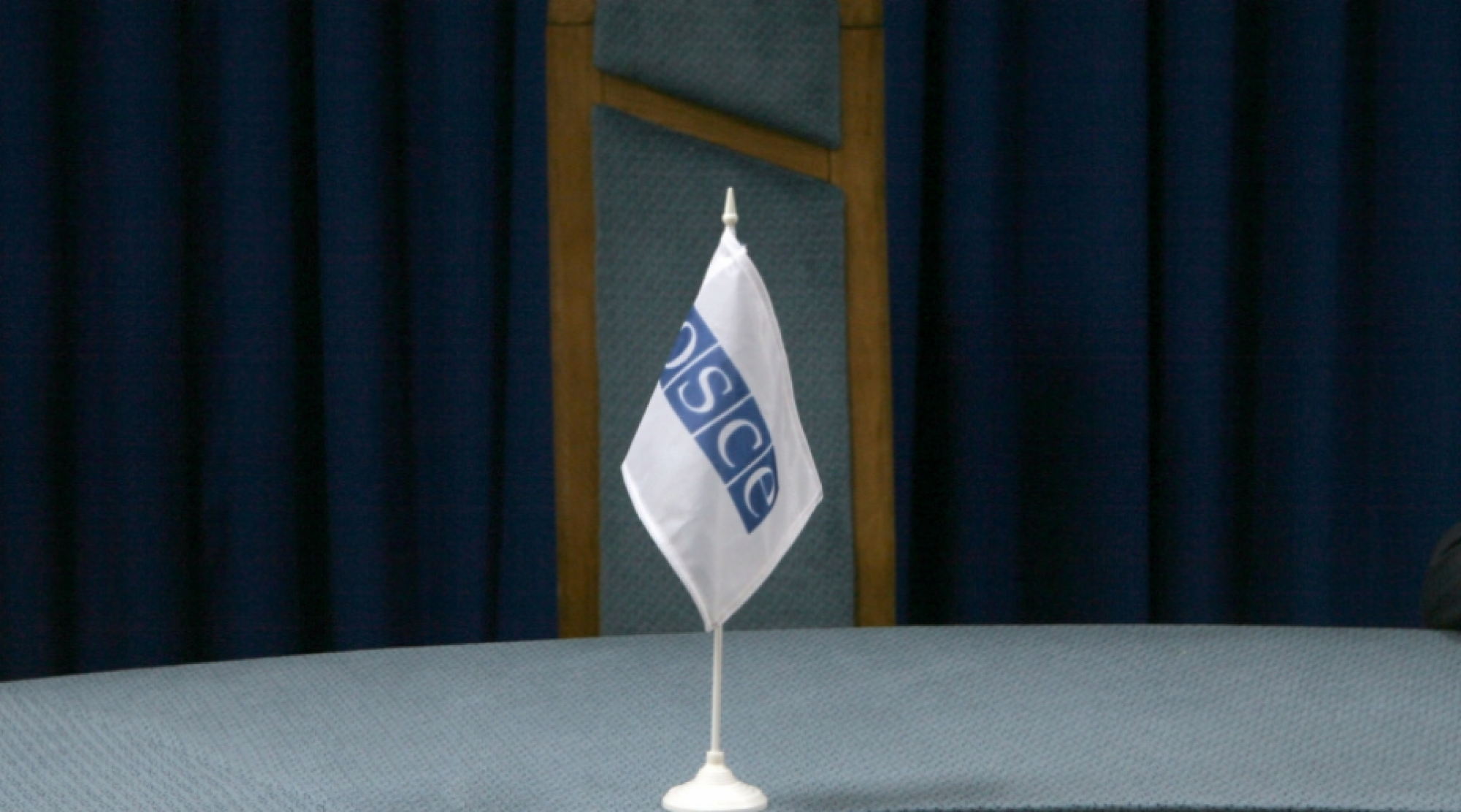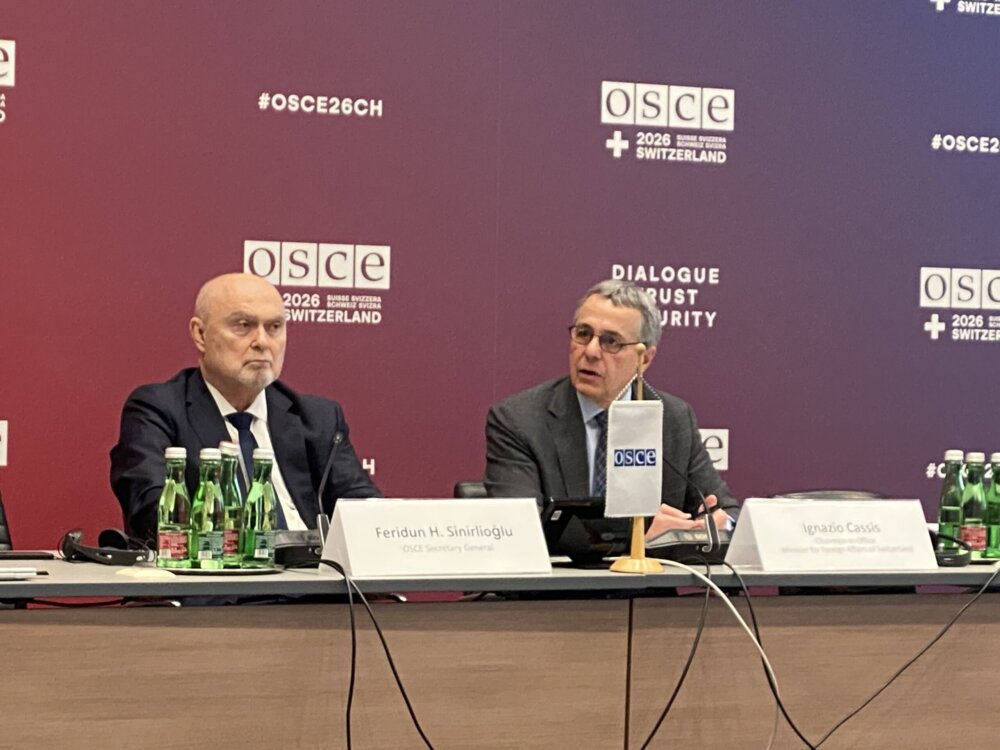Photo: OSCE/Mikhail Evstafiev

Time for reforming the OSCE and the European security architecture? Not quite.
This year, we mark important anniversaries of historical events that paved the way for the gradual emergence of the international rules-based order. The signings of the UN Charter and the Helsinki Final Act 80 and 50 years ago respectively have played a key role in making Europe the champion of multilateralism and eventually bringing European states not only security and stability, but also freedom, democracy and the rule of law.
The OSCE has been instrumental in the latter. While Russia’s invasion of Ukraine has ignited a political-military crisis unprecedented in the modern era, and has sparked discussions about major reforms of the OSCE and the European security architecture, it is not the time to turn the tables.
Contrary to some calls for reforming the OSCE, the organization continues to serve its purpose. With its inward-oriented structures and mechanisms aimed at holding participating states to account, it presents a unique diplomatic instrument that works towards increased transparency, dialogue and accountability in various areas, from arms control to human rights. What gives it a distinctive political strength is that the OSCE principles and commitments have all been agreed by consensus, meaning that all participating states have expressed their consent to them, the powerful ones and the small ones alike. Although the state-to-state peer-review mechanisms do not always deliver instant results, they continue to fulfill important functions by exposing and documenting the violations, and eventually offering participating states the opportunity to exert political pressure on those that demonstrate a non-conforming behavior.
The OSCE, which forms an integral part of the international rules-based order, has enabled its participating states – regardless of their size, economic or military power – to fully exercise their right of sovereign equality. It effectively put an end to the spheres of influence concept and allowed states to choose how they want to conduct their foreign policies and with whom they wish to cooperate on ensuring their security and defense, which is in line with the UN Charter.
Additionally, those countries that had previously been deprived of this prerogative, now enjoy greater economic prosperity. For instance, according to World Bank data, the GDP per capita of any EU country last year, including of those previously situated in the so-called Eastern bloc, has been higher than that of the Russian Federation.
Presently, ending the war in Ukraine remains the top priority. The parameters of a potential settlement will set the tone for further deliberations on how to best adapt and modernize the OSCE as a pan-European organization of cooperative security. Its founding principles and the commitments that have evolved over the years must, however, remain intact. They should not fall victim to accommodating the interests of any OSCE participating state. Since 1975, Europe has come a long way in assuming responsibility for the security and defense of the continent and is no longer in the position to wait for a “great bargain” between major powers. Quite the contrary, Europe has become the major actor in safeguarding the values and principles that define the international rules-based order. With the rise of Realpolitik and the attempts to weaken multilateralism and international institutions, Europe should stand its ground.
The OSCE does not need to undergo dramatic reforms or make changes to its membership. While Russian representatives continue to voice their concerns about the OSCE and ever more often mention the possibility of a Euro-Asian alternative, there is no immediate plan or tangible effort to leave the OSCE. At the same time, “talking to an empty Russian chair” can hardly be considered a long-term strategy in maintaining peace and security in Europe.
The concept of indivisible security, which remains at the core of Russia’s claims about the root causes of the war in Ukraine, has had many interpretations in the past and any generally accepted definition remains elusive. One thing is certain, however: this principle cannot override international law enshrined in the UN Charter. Rather than pondering major reforms, our joint efforts should focus on ending the war in Ukraine, bringing the perpetrators to account and restoring meaningful dialogue. After all, let us not lose sight of the bigger picture and the world beyond the OSCE area. There are many challenges ahead, around the globe, which will be better handled if Europe hangs together.
Peter Pindjak is Deputy Head of the Slovak Permanent Mission to the UN, OSCE and other international organizations in Vienna.
The views expressed in the article are solely those of the author and do not represent the official position of the Slovak Ministry of Foreign and European Affairs.



Comments
* Your email address will not be published